Sound System Cultures Worldwide Pt.2
The Reggae sound system diaspora
Continuing the annual report with an account of the main research activities for the SST project in 2023, this week’s blog focuses on the reggae sound system and its technological diaspora. As a fact, whether playing dancehall, dub or revival, there are sound systems operating literally in every continent. This makes the Jamaican-born institution of the sound system the first and most truly globalised SST.
Europe: France and Belgium
Our research on the sound system movement in Europe continued by scoping out in depth two of the major countries for the concentration of sonic street technologies in the continent: France and Belgum. Besides continuing the mapping of the local sound system scenes with encouraging participation and results, the project was also able to make some in-person interventions. One was an informative stall at Dub Camp in July 2023, the major EU festival dedicated to reggae and sound system culture, run by Dr Jean Christophe Sevin and research Emilia Escamilla. SST Senior Research Dr Brian D’Aquino was also on the festival bill with his Bababoom HiFi sound system (full set), embodying the practice-as-research approach that is central to the SST project (a blog is forthcoming).
SST also participated in an event in Brussels held in partnership with Culture & Démocratie, Osmose, and PointCulture at the Cinema Nova in Brussels. Both events provided a chance to disseminate the findings of our ongoing research to a non-academic audience as well as widening our network of supporters and collaborators. Again, we must mention Dr Jean Christophe Sevin as well as our Belgian collaborator Dries Talloen who represented SST at this event.

Dub Camp Festival © JC Sevin
Canada
The research in Canada has also started to produce outputs. The annotated bibliography compiled by SST Canada team led by Prof Mark Campbell, director of the Afrosonics Lab at the University of Toronto, shed light on the sonic legacy of the Jamaican diaspora in Canada, which is responsible for igniting a local sound system scene which, through thick and thin, continues to flourish up to this day. This was also highlighted in Campell’s first blog Mighty Crown’s last visit to Canada? as well as being the subject of Alanna Stuart’s Rewind/forward exhibition in Toronto, Canada.
Australia
The SST collaboration led by Prof Douglas Kahn and Dr Clare Cooper at the University of Sydney has this year established itself with researchers Moses Iten and Andrew Belletty, both long term SST friends and collaborators. Melbourne has a growing sound system community, as reported in Moses’ Heavy Congress blog back in 2022. A recent output is a film on the Honey Trap sound system in Sydney to be shown at the SSO#10 screening at the Global Reggae Conference in Jamaica. In December, Moses chaired a panel discussion at the Roots and Bass’ panel at the IASPM (International Association for the Study of Popular Music) at the Waikato Institute of Technology in Hamilton/Kirikiriroa, Aotearoa New Zealand. Panel presentations came from Taupuru ‘Ariki’ Whakataka Brightwell, Patrick ‘Dubhead’ Waller, Brent Clough as well as Moses Iten, delving into some of the key aspects of Aotearoa New Zealand and the Australia/Pacific region’s sound system history.
Andrew Belletty is leading on the Knock-em Downs Sound System project that is confirmed in Darwin from 6-14th April, and is being developed with past and present elders of the local music scene including Speargrass Sound System, DJ Charly T and James Mangohig. The workshops, seminars and two public events are supported locally by Charles Darwin University, The Darwin City Council, Northern Territory Youth Week and the Bagot Community. Planning for the documentary film and VR rendering of the events is underway which will both be completed my end May 2024.
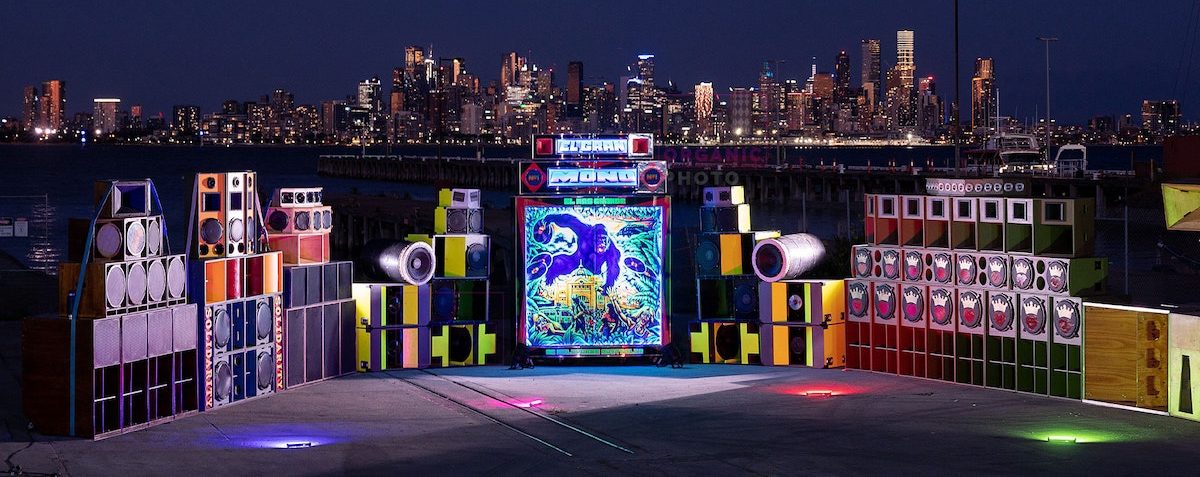
Heavy Congress event in Melbourne, the subject of a research film from SST Australia
South Africa
South Africa is one of Africa’s most representative countries when it comes to sonic street technologies thanks to the local reggae sound system scenes that spans over several decades. Music gatherings and group dancing have also retained a unique social and political function as an organic part of people’s resistance to racial segregation and apartheid. We also had to acknowledge the distance between the popular culture and the local academia as well as the widespread distrust of sound system practitioners for anything institutional. For this reason, we have decided to embrace the practitioner’s perspective by working with local sound system Kebra Ethiopia. Thir case study film about the Survival tradition (hosting street dances in support of community members in need) is currently being finalized.
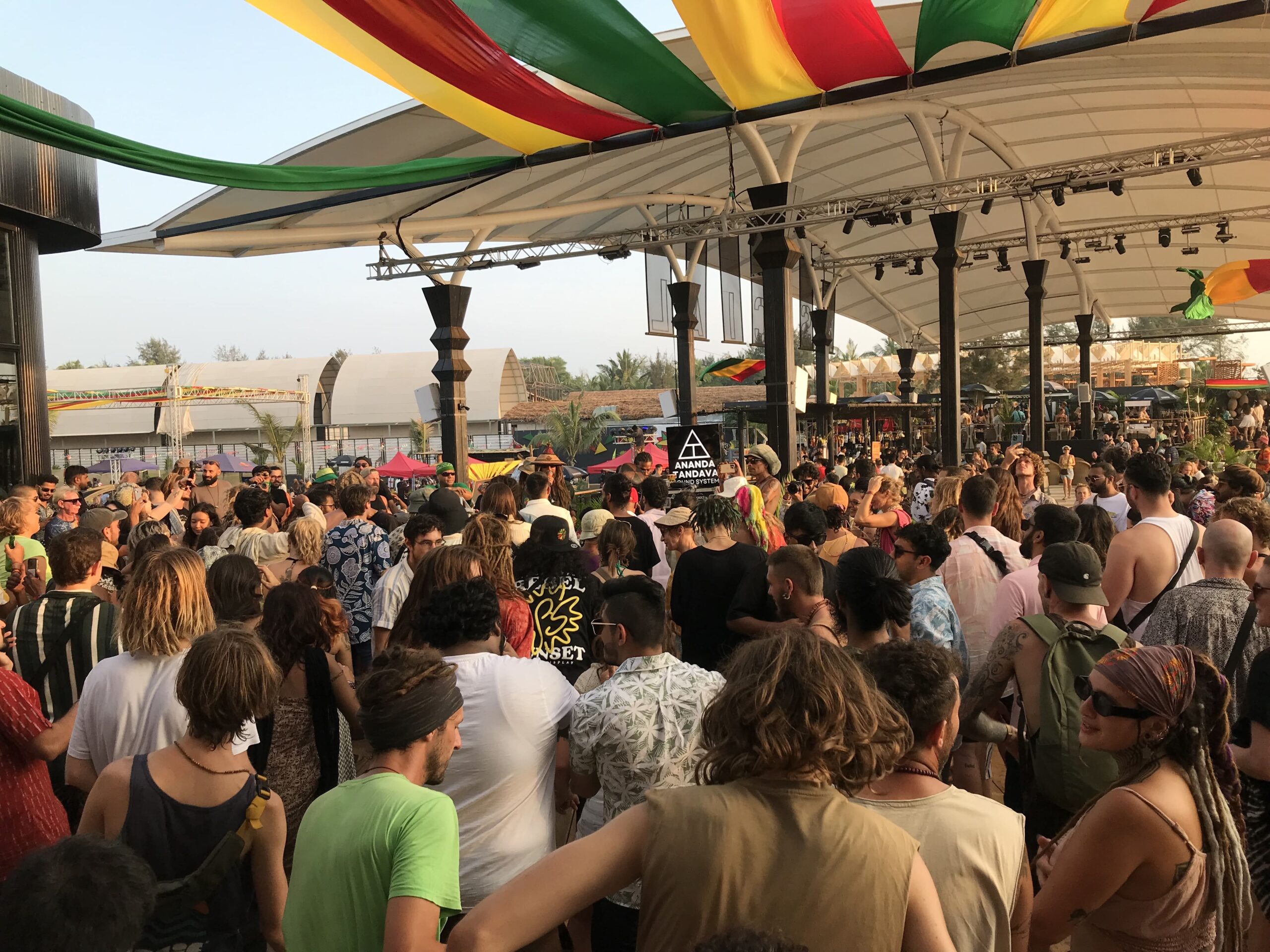
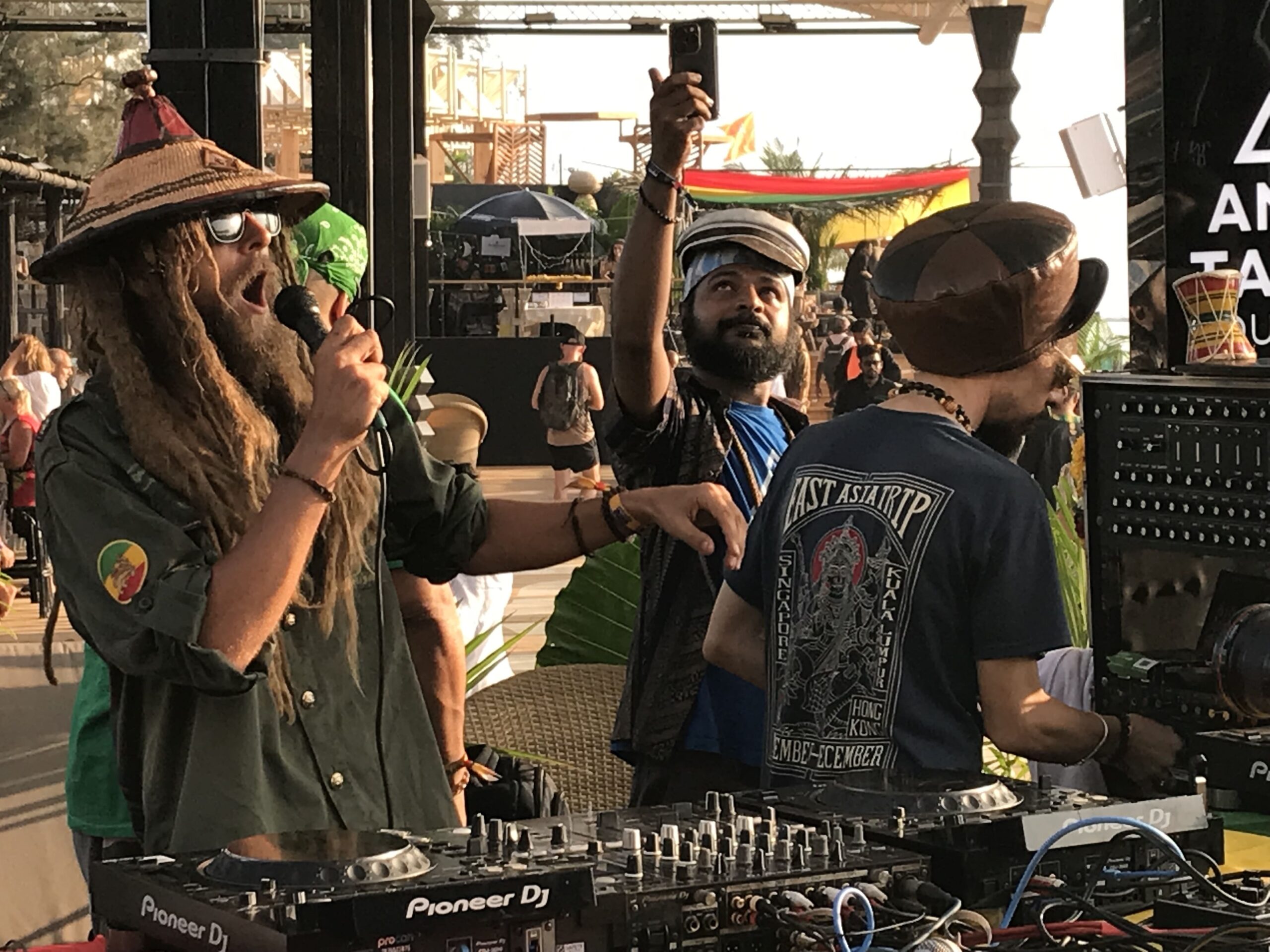
Goa Sunsplah 2024. 10K Lions and Ananda Tandava performing in the sound system stage © Julian Henriques
India
In India, sound system culture is intrinsically tied to the culture of jugaad – a localized system of frugal innovation, and host of pre-existing musical subcultures that preceded the arrival of actual physical sound systems. Led by SST research assistant Aadita Chaudhury, the SST project has been in contact with the sound system scene within India, since the inception of the project in the year 2021. This has led to extensive field research in to explore local sound system scenes, specifically with Monkey Sound System, BFR Sound System, 10,000 Lions and Small Axe Sound. In the year 2023, SST commissioned three short films to Monkey Sound System, BFR Sound System and 10,000 Lions to situate the realm of their practice. These films and others will be shown in the 2024 Global Reggae Conference in Jamaica next month and these sounds are featuring at Goa Sunsplash, 2024.
UK
The UK, and especially London where the project’s hosting Institution Goldsmiths is located, has been the subject of extensive research for both SST and its sister organization, SSO, since at least 2016. In 2023 we have concentrated on consolidating our position as a reference for the local community and point of contact between this and the institution. We started by hosting a screening event for our research documentary UK Generation 2 Generation based on the SSO#8 Reasoning Session held at Goldsmiths in November 2022 (see this blog). The response from the community went way beyond our expectations, in many ways testifying that showing respect to the elders and practitioners first is the best way to earn respect and trust in return – even from the notoriously suspicious UK sound system community. We have reported on the SSO#9 screening event in May in this blog.
A second way has been launching our YouTube archive, which makes excerpts from our filmed interviews available to the community, starting from Mandeep Samra’s and Gopal Dutta’s case study in Huddersfield, in the North of England. This is another way to show respect to the practitioners who are the real knowledge bearers in the sound system scene. It is even more crucial at the present time, when the founding generation is quickly passing, and their knowledge in many cases hasn’t been registered, nor their contribution acknowledged. Video archivist for the SST project is Siufan Adey, whose expertise and sensibility has immensely added to what was initially just a small team’s intuition. She has summarized her criteria and scope in curating the SST archive in this blog.
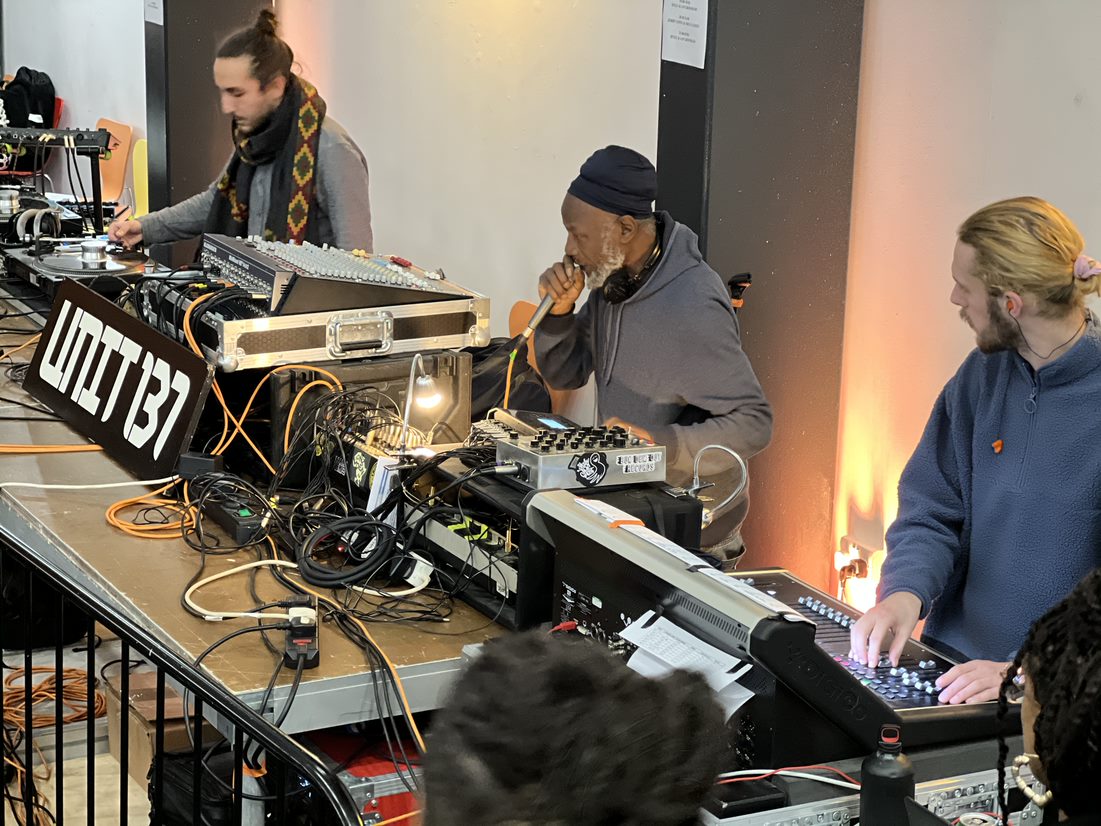
Jerry Lions performing on UNIT 137 sound system at Goldsmiths University, 2022
A third way that our project and the academy more broadly can support sound system cultures is by making available not only its cultural capital, research infrastructure and know-how, but also its physical spaces. At a time when the biggest threat for sound system culture’s very existence is the lack of venues caused by widespread gentrification and tightening regulations, not least on noise levels, universities can be a reservoir of safe and affordable physical spaces where non-commercial dances, gatherings and sessions can be held, as discussed in this blog. One major example of this is the Nine Night celebration for the legendary Black British soundman Jah Shaka held at Goldsmiths in April 2023. The event saw a participation of more than a thousand peaceful attendees coming not just from the Lewisham borough where the Shaka legend hails from but also from the whole of the UK and even from abroad. The significance of the event has been immense for the sound system and Rastafari community but probably even more for Goldsmiths, which was recognized by the community as a real asset and a safe space where they would feel accepted and supported.
Scotland
In addition to the work that SST has done extensively with UK sound systems, in the summer of 2023, the project had the chance to specifically explore sound system and reggae culture in Scotland. Scotland holds a unique position as a nation within the United Kingdom, with its own histories in relation to the Caribbean and the global Black diaspora. In Scotland, SST research assistant Aadita Chaudhury explored how local Black culture and urban spaces are influenced by local abolitionist histories that span back to the early 19th century. In addition to exploring Scotland as a site of sound system culture and related practice, the SST research based in Scotland also helped situate the intellectual culture and innovation that is embedded in present-day SST who have direct links to Black technoscientific knowledges that were developed in Scotland itself. More than being an ethnography of local sound system culture, the Scottish case study for the SST project provides a theoretical and broader historical understanding about the context of Black technoscientific and sonic knowledges and how sound system cultures are part of them.
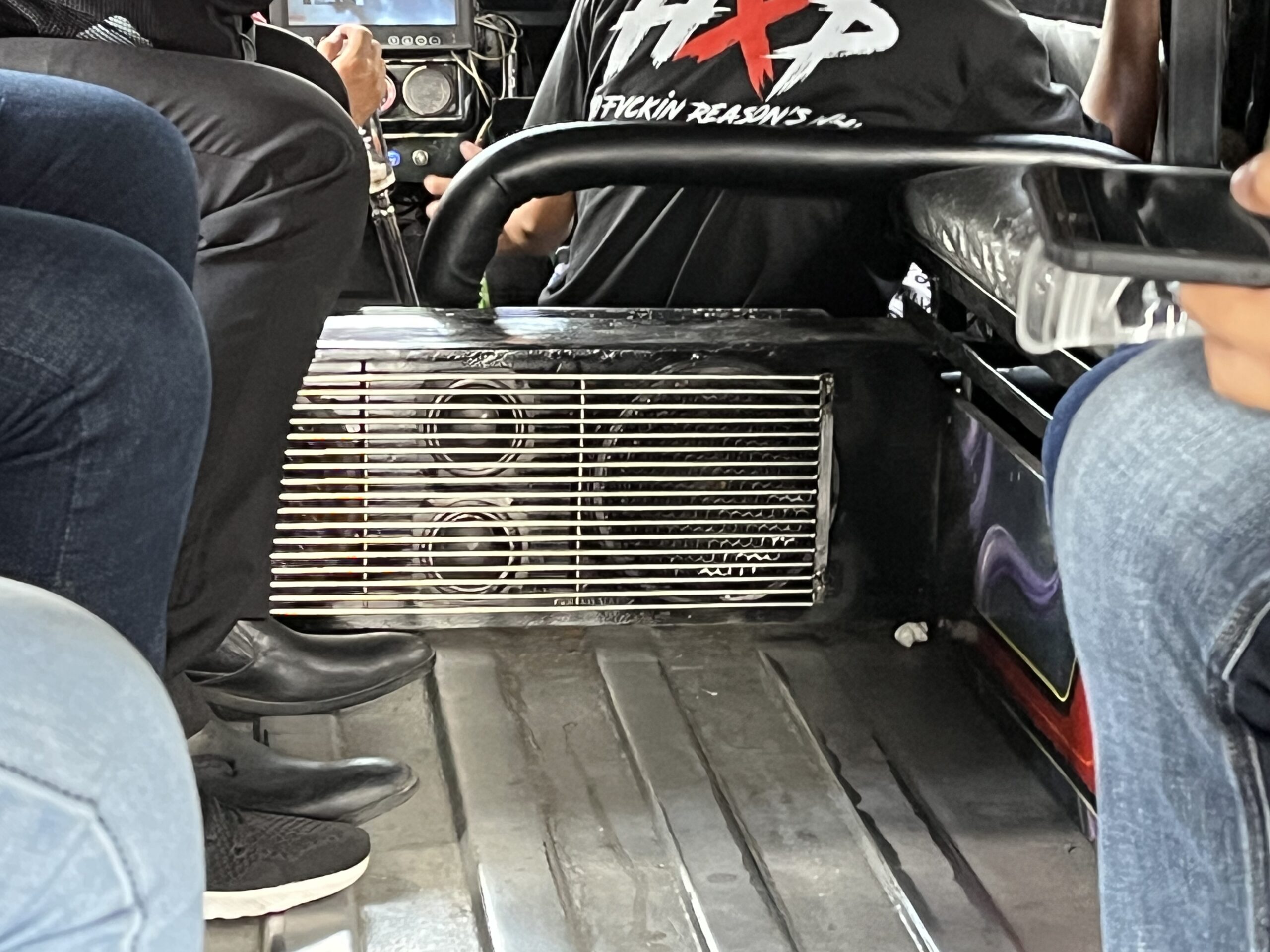
Sounds on wheels: buses, bikes and trolleys
Sound systems on wheels are perhaps the most elusive and hard to describe type of sonic street technology the project has encountered so far. This label includes a wide range of apparatuses, from skaters wearing boombox backpacks to massive, custom made (sometimes even foldable) sound system sets mounted on minivans. To a certain extent, all sonic street technologies are mobile, in the sense that they are transported from the storage to the venue and back after the party. Therefore, what characterizes sounds on wheels is that they are designed to play while moving. Also, they are often physically part of a mean of transport such as a bus or a car and are not designed as stand-alone devices. While there might be one or more music genres associated to a particular scene, they often do not have any coded form of presentation for the music, nor any skilled crew members in charge of it beyond merely pressing play on their device of choice. Indeed, they are a culture, pretty much in the sense that pimped cars are. For the scope of our research, they are situated at the edge of what a sonic street technology is, as reported in these blogs, respectively on Manila’s jeepneys, South London roller skaters and Costa Rica’s disco moviles.
Decolonising subtitles
In December, SST initiated an exciting partnership with the Jamaican Language Unit (JLU) at The University of the West Indies. This collaboration, the first of its kind, will involve working with Dr Keren Cumberbatch and Susanna Campbell Blagrove from JLU to subtitle our Jamaica case study videos in both English and Jamaican. Proposed by SST’s video archivist, Siufan Adey, the project aims to confront and disrupt the colonial legacies of archiving and filmmaking, and recognise Jamaican as a language in its own right. Indeed, this work taps into political conversations about language currently taking place in Jamaica, with some politicians seeking to give it official language status. By incorporating Jamaican subtitles in our films, we hope to honour the language’s central role in reggae music, the foundation of Jamaican sound system culture, and open up avenues for further research and collaboration.
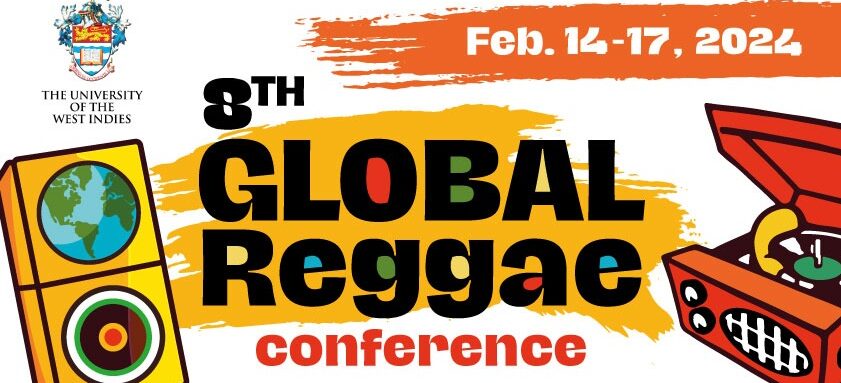
Header for the 8th GRC
The 8th Global Reggae Conference
We can end our 2023 report with Jamaica where we started our research and where we are heading to next month, with SST and SSO honoured to be partners in the staging of the 8th Global Reggae Conference, to be held at the University of the West Indies, Mona Campus, in February 2024. For the first time in its history the conference subject will be the sound system – as Dr Stanley Niaah calls it, Jamaica’s national instrument – and its different adaptations or versions from across the world. The response to the call for papers has been truly overwhelming, with proposals coming in literally from the four corners of the globe. This reflects how, while sound system cultures break down geographical, social and racial barriers, the academic debate on sound systems’ history and cultural significance is also gaining momentum. The conference will host a special SSO#10 day with a full film program, including a premiere screening for most of our own research films. The conference will also see the participation of a SST contingent and provide the chance for a much needed in-person meeting. We hope to see you all in Kingston!
